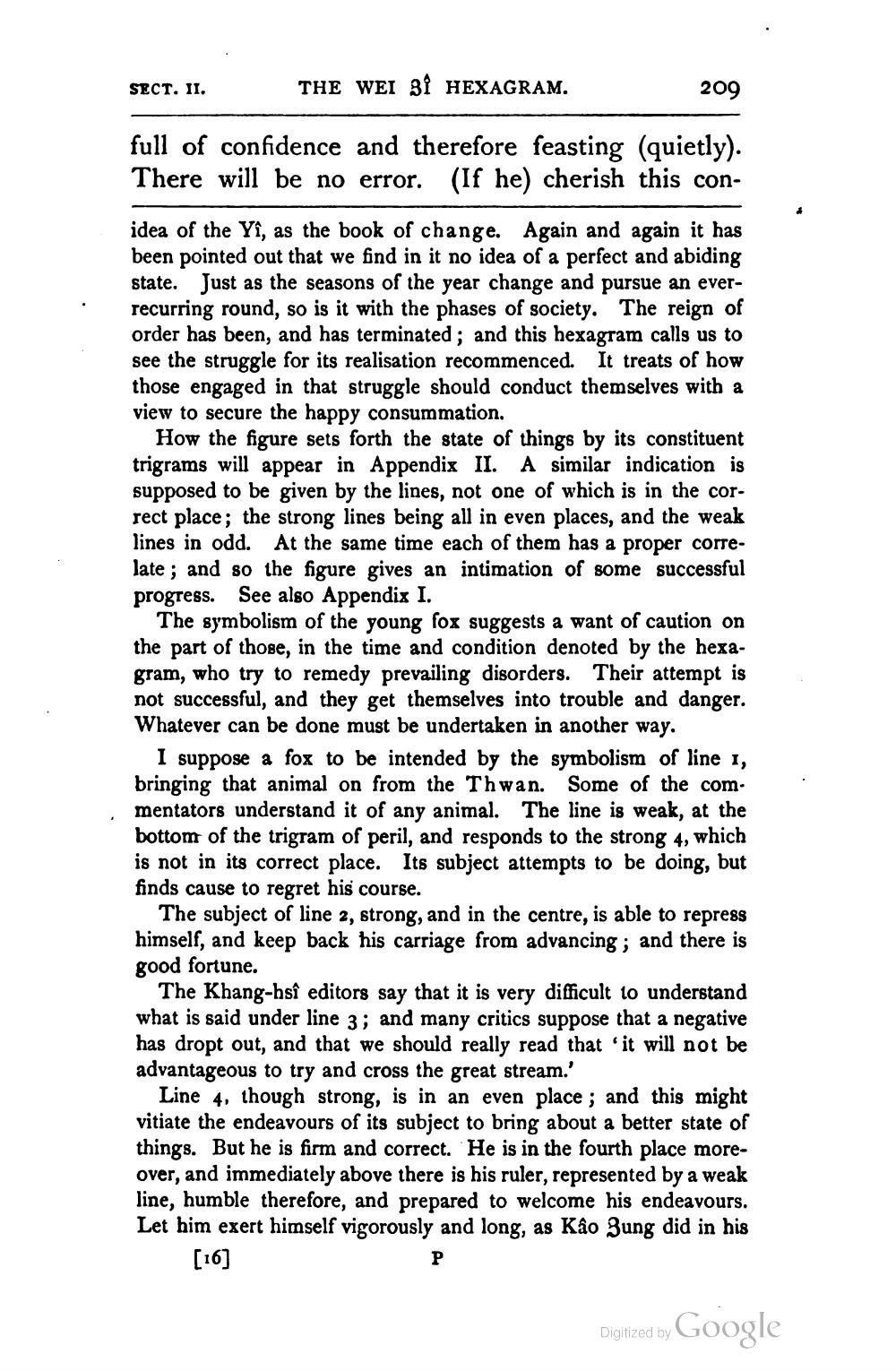________________
SECT. II.
THE WEI 31 HEXAGRAM.
209
full of confidence and therefore feasting (quietly). There will be no error. (If he) cherish this con
idea of the Yî, as the book of change. Again and again it has been pointed out that we find in it no idea of a perfect and abiding state. Just as the seasons of the year change and pursue an everrecurring round, so is it with the phases of society. The reign of order has been, and has terminated; and this hexagram calls us to see the struggle for its realisation recommenced. It treats of how those engaged in that struggle should conduct themselves with a view to secure the happy consummation.
How the figure sets forth the state of things by its constituent trigrams will appear in Appendix II. A similar indication is supposed to be given by the lines, not one of which is in the correct place; the strong lines being all in even places, and the weak lines in odd. At the same time each of them has a proper correlate; and so the figure gives an intimation of some successful progress. See also Appendix I.
The symbolism of the young fox suggests a want of caution on the part of those, in the time and condition denoted by the hexagram, who try to remedy prevailing disorders. Their attempt is not successful, and they get themselves into trouble and danger. Whatever can be done must be undertaken in another way.
I suppose a fox to be intended by the symbolism of line 1, bringing that animal on from the Thwan. Some of the commentators understand it of any animal. The line is weak, at the bottom of the trigram of peril, and responds to the strong 4, which is not in its correct place. Its subject attempts to be doing, but finds cause to regret his course.
The subject of line 2, strong, and in the centre, is able to repress himself, and keep back his carriage from advancing; and there is good fortune.
The Khang-hsî editors say that it is very difficult to understand what is said under line 3; and many critics suppose that a negative has dropt out, and that we should really read that it will not be advantageous to try and cross the great stream.
Line 4, though strong, is in an even place; and this might vitiate the endeavours of its subject to bring about a better state of things. But he is firm and correct. He is in the fourth place moreover, and immediately above there is his ruler, represented by a weak line, humble therefore, and prepared to welcome his endeavours. Let him exert himself vigorously and long, as Kao Zung did in his
[16]
C.
Digitized by Google




